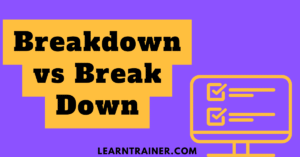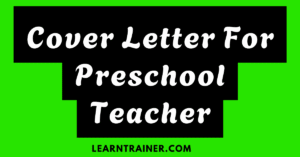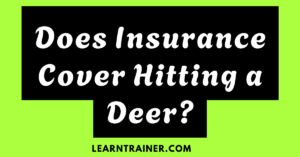If you’re a fan of precision in language, or even if you simply want to communicate clearly in everyday situations, you’ve likely come across the terms lookout and look out and wondered whether they’re interchangeable. They sound so similar, so why would you need to know the difference?
Imagine you’re on a hiking trail with a group of friends, and someone says, “Let’s stop at the lookout ahead and take some photos.” But then, someone else yells, “Look out! There’s a snake!” Both phrases involve watching or looking for something, but their meaning, usage, and contexts are vastly different.
In this article, we’re going to dig deep into these two expressions, explore how they’re used, clarify their meanings, and give you practical examples to help you distinguish between them in any situation. Whether you’re writing an email, giving directions, or warning someone about an approaching car, understanding when to use lookout versus look out is crucial.
So, what exactly is the difference, and why does it matter?
Hook: A Real-World Example
Let’s take a minute and step into a story. Picture yourself standing on a cliff edge, overlooking a beautiful valley. You’re on a road trip and just made it to a famous scenic spot. Someone next to you says, “Be careful! The lookout point is just ahead.”
You might nod and continue walking, thinking they’re warning you about a dangerous drop. But wait did they mean “look out” instead? Or were they actually referring to the lookout point?
Here lies the issue. Lookout and look out are so closely related in meaning that it’s easy to mix them up, especially when you’re speaking quickly or casually. However, using them incorrectly can make your message unclear, and in some cases, it could even change the meaning entirely.
Let’s take a closer look at these two terms to make sure you’re never confused again.
What is a “Lookout”?
When we talk about a lookout, we’re generally referring to a noun. A lookout can be one of three things: a physical location, a person, or a role. Regardless of which meaning applies, a lookout always involves observation or surveillance.
Lookout as a Place (Location):
In many cases, a lookout refers to a designated area that offers a good vantage point, where one can observe the surrounding environment.
These places are often found in natural settings like mountains, hiking trails, or along coastlines. A lookout point might be built with benches, railings, or even an observation tower, where people can stop and take in the view.
Examples:
- “We reached the mountain’s summit and stopped at the lookout to take pictures of the panoramic view.”
- “The car broke down near the scenic lookout on Route 101.”
Lookout as a Person (Role):
Another common usage of lookout is to describe a person assigned to watch over a particular area or look for something. This can be in a security setting, like a guard or a sentry, or even in the case of a lookout on a boat or in a forest setting.
Examples:
- “The lookout was the first to spot the approaching storm.”
- “He stood at his post as the lookout, scanning the horizon for any signs of danger.”
Lookout as a Role (Position):
This can also be used in terms of a position someone takes on a ship, a military post, or even a hiking expedition. It’s a role that’s crucial for safety and awareness.
Example:
- “The lookout has a crucial job in spotting any dangers that might appear on the horizon.”
Fun Fact:
Lookouts are often positioned in areas of high elevation to give them the best chance of spotting anything of importance, whether that be a storm, a ship, or an intruder.
What Does “Look Out” Mean?
In contrast to lookout, look out is a phrasal verb. It’s used primarily as a warning or to tell someone to be cautious and alert to something that may be dangerous or significant.
In other words, you say look out when you want someone to pay attention to potential hazards, either physical or metaphorical.
Look Out as a Warning:
The most common use of look out is when you’re alerting someone to something that could pose a threat. It’s a call to action, an immediate reaction to danger. Often, it’s shouted to ensure the person hears and responds quickly.
Examples:
- “Look out! There’s a car speeding toward us!”
- “Look out! The ice is slippery, so be careful.”
Look Out for Opportunities:
In a less urgent context, look out can also mean “to be on the lookout” for something good or beneficial. This doesn’t involve danger but refers to keeping an eye on something you want to take advantage of.
Example:
- “Look out for new job openings in the tech industry.”
- “I’ll be looking out for good deals on electronics this weekend.”
Fun Fact:
Look out can also be used in a metaphorical sense to advise people to stay alert and seize opportunities. It’s not always about danger; it can be about positive prospects, too!
When to Use “Lookout” vs. “Look Out”
Now that we’ve discussed both terms individually, let’s look at when and how you should use each of them correctly.
When to Use “Lookout”:
- When referring to a physical location with an elevated view (e.g., a scenic spot, an observation tower).
- When referring to a person tasked with watching for something (e.g., a guard or watchman).
- When referring to the act of observing or being vigilant in a designated position.
Examples:
- “The lookout on the hill gave us a perfect view of the sunrise.”
- “The lookout called out, warning us of the approaching danger.”
When to Use “Look Out”:
- When giving a warning or alerting someone about potential danger or something they need to pay attention to.
- When advising someone to be cautious or stay vigilant, either in an immediate situation or about opportunities.
Examples:
- “Look out! The branch above you is about to break.”
- “Look out for the new store opening next week; it’s supposed to be amazing.”
Key Differences between “Lookout” and “Look Out” (Comparison Table)
Here’s a simple table that will help you remember the key distinctions between lookout and look out:
| Feature | Lookout | Look Out |
| Part of Speech | Noun | Phrasal verb (verb + preposition) |
| Meaning | A place, position, or person designed for watching or observing | To be alert and aware of something, often a danger or hazard |
| Example | “The lookout offered a panoramic view of the valley.” | “Look out for that car!” |
| Common Contexts | Security, nature, observation roles | Warnings, precautions, alertness |
Real-Life Examples and Personal Insights
Let’s dive into some real-life scenarios and personal insights to solidify your understanding.
Example 1: The Mountain Hike
You’re hiking with friends on a scenic trail. After a couple of hours, you reach the top where there’s a lookout point.
It’s the perfect place to stop and take a break while enjoying the breathtaking view. In this case, lookout refers to the specific spot that’s been designated for observation.
Example 2: The Dangerous Intersection
You’re walking with a friend in a busy downtown area. Suddenly, they yell, “Look out!” as a cyclist speeds by. Here, look out is used to warn you about immediate danger. It’s a cautionary statement meant to make you aware of a potential hazard.
Personal Insight:
In my own experience, I’ve used both terms without thinking much about the distinction. Lookout usually pops up when I’m discussing nature hikes or certain positions in security.
But I often say look out when I’m trying to warn someone or keep them alert. For example, if I’m walking with someone and there’s a loose step ahead, I’ll shout, “Look out!” to make sure they don’t trip.
Conclusion
To sum up:
- Lookout refers to a specific location, a person, or a role dedicated to watching or observing.
- Look out is a phrasal verb used to warn someone or ask them to be vigilant, particularly regarding danger.
The distinction is simple once you understand the contexts in which each is used. As you continue to practice, you’ll find that the difference between lookout and look out will become second nature. Just remember: lookout is about the place or person, while look out is about paying attention to what’s coming your way!
FAQs
1. Can “lookout” be used in informal speech?
Yes, lookout can be used informally when referring to places like scenic viewpoints, although it’s more commonly used in formal or nature-related contexts.
2. What’s the most common mistake people make with these terms?
The biggest mistake people make is using lookout when they should use look out—especially when giving warnings. Mixing them up can lead to confusion, especially in urgent situations.
3. Can “look out” be used in a positive sense?
Yes! While look out is commonly used for warnings, it can also be used in a positive context when advising someone to seize an opportunity (e.g., “Look out for that great job opening!”).
4. Is there any overlap between the two?
There is minimal overlap, though in a certain sentence structure, both can be used one referring to a position or location, and the other to an alert or warning action. It’s all about context!


